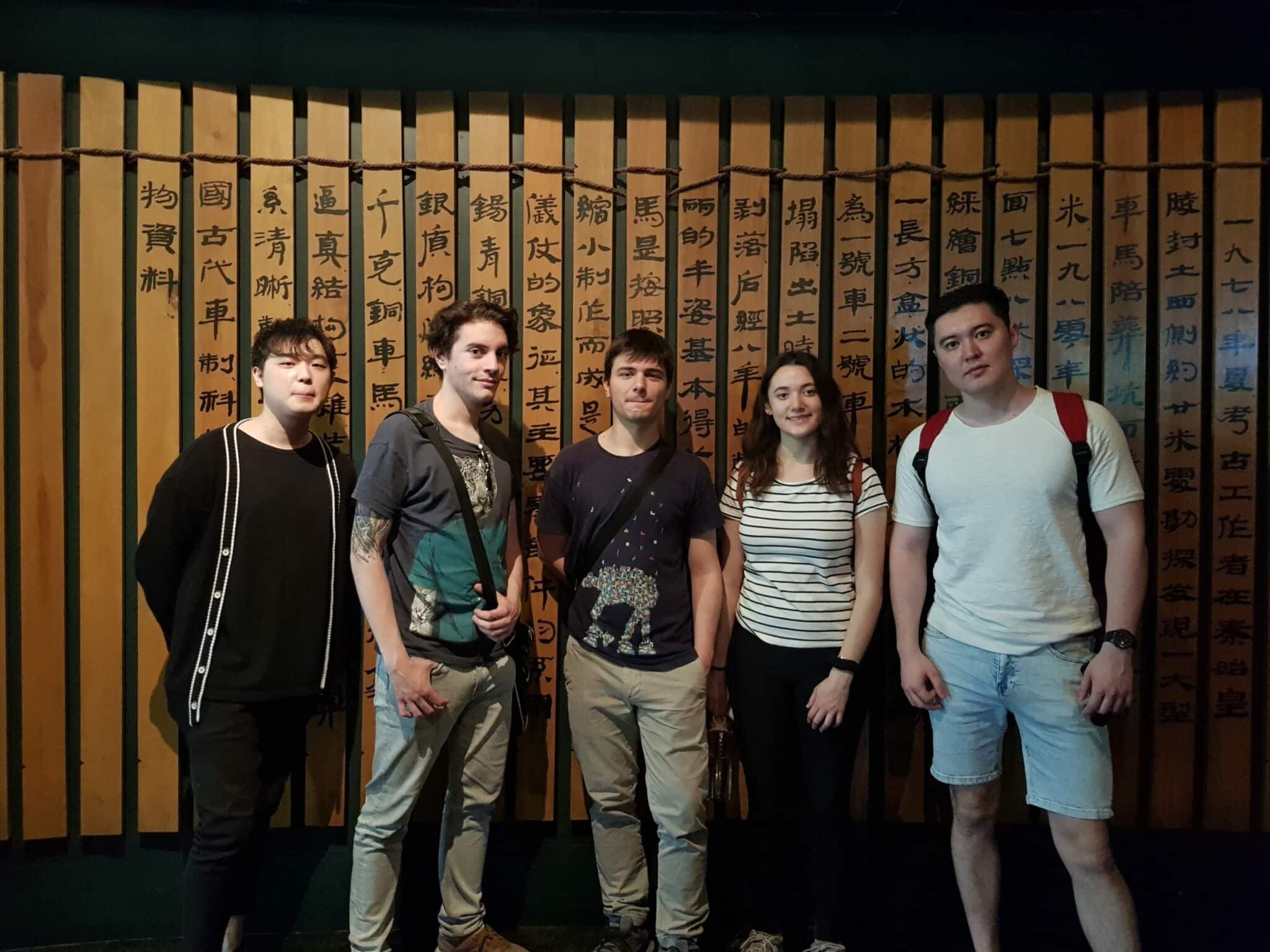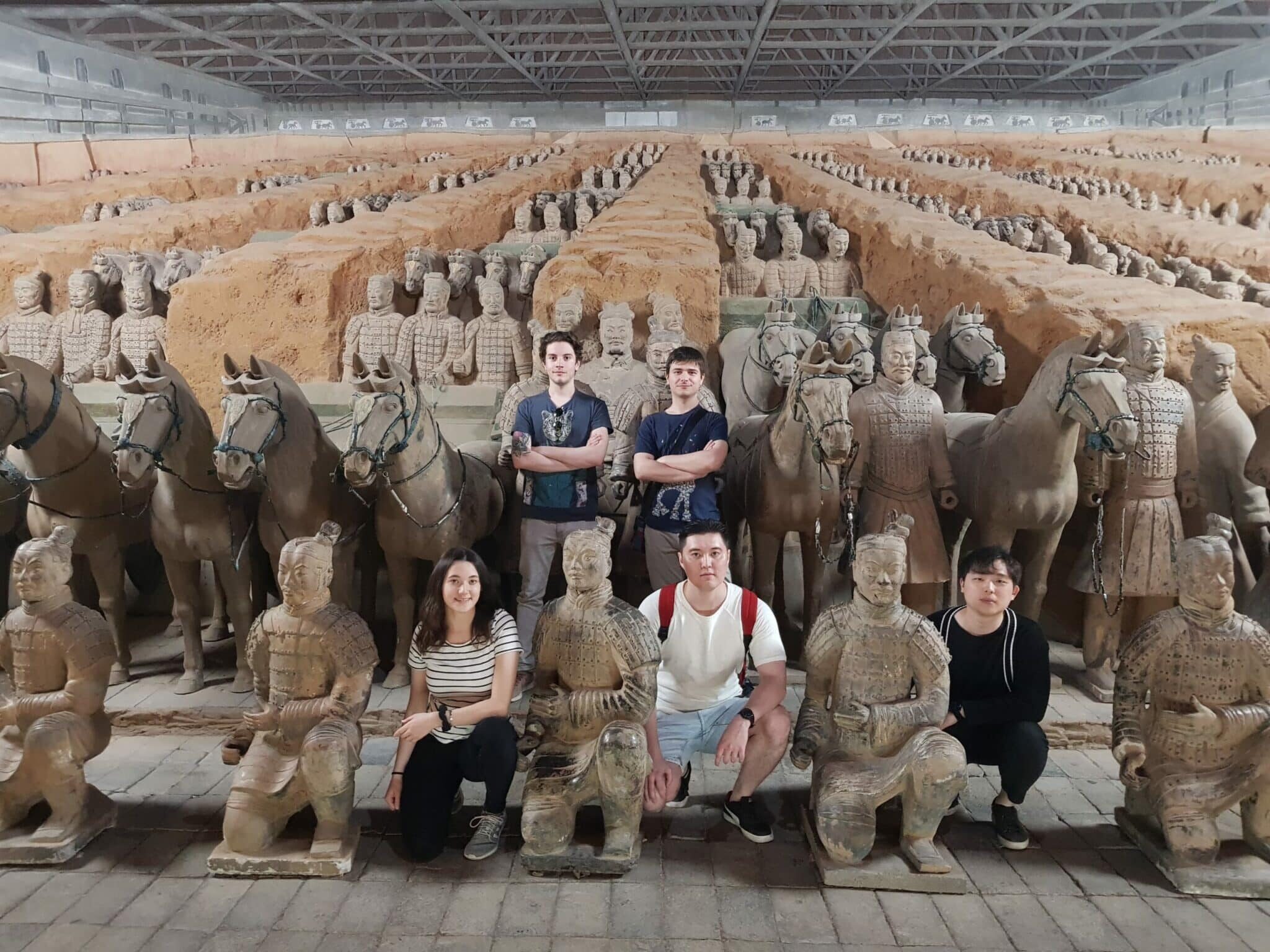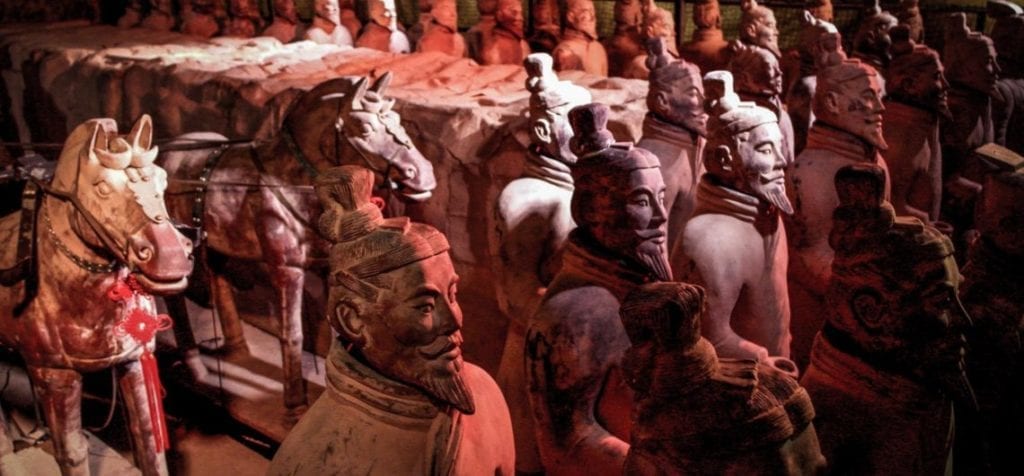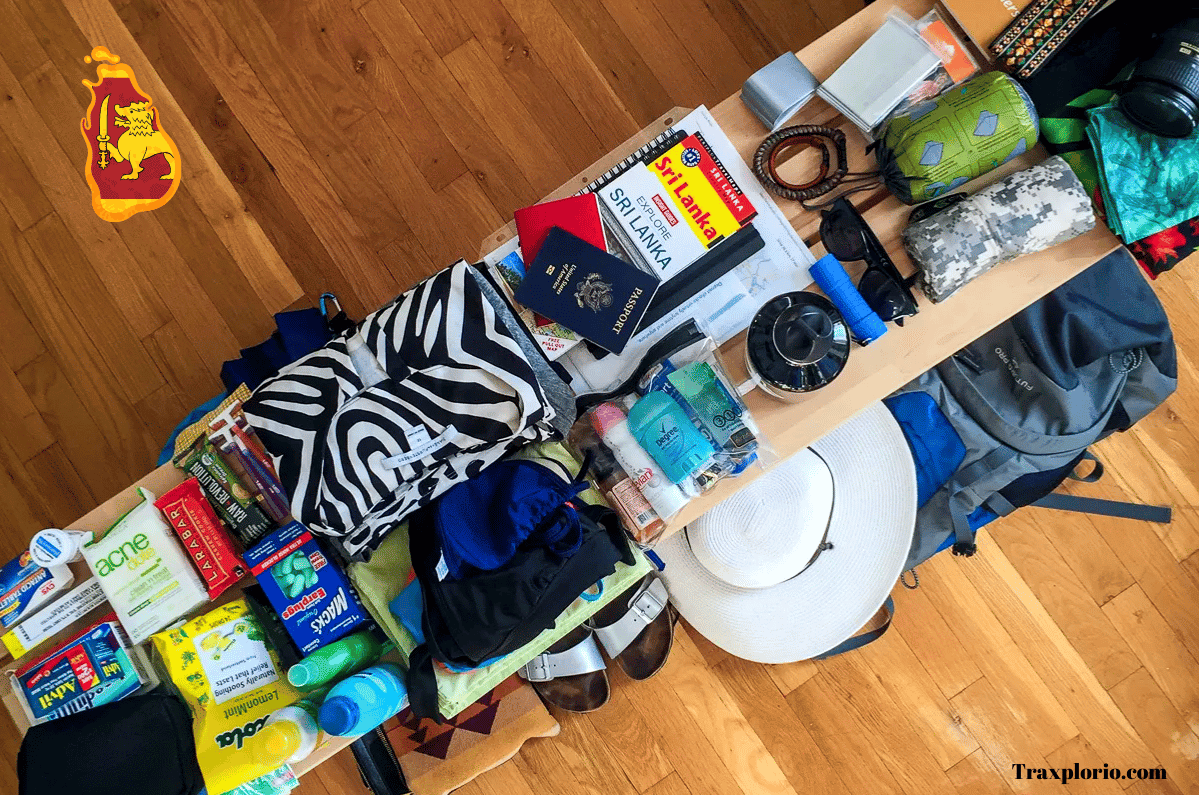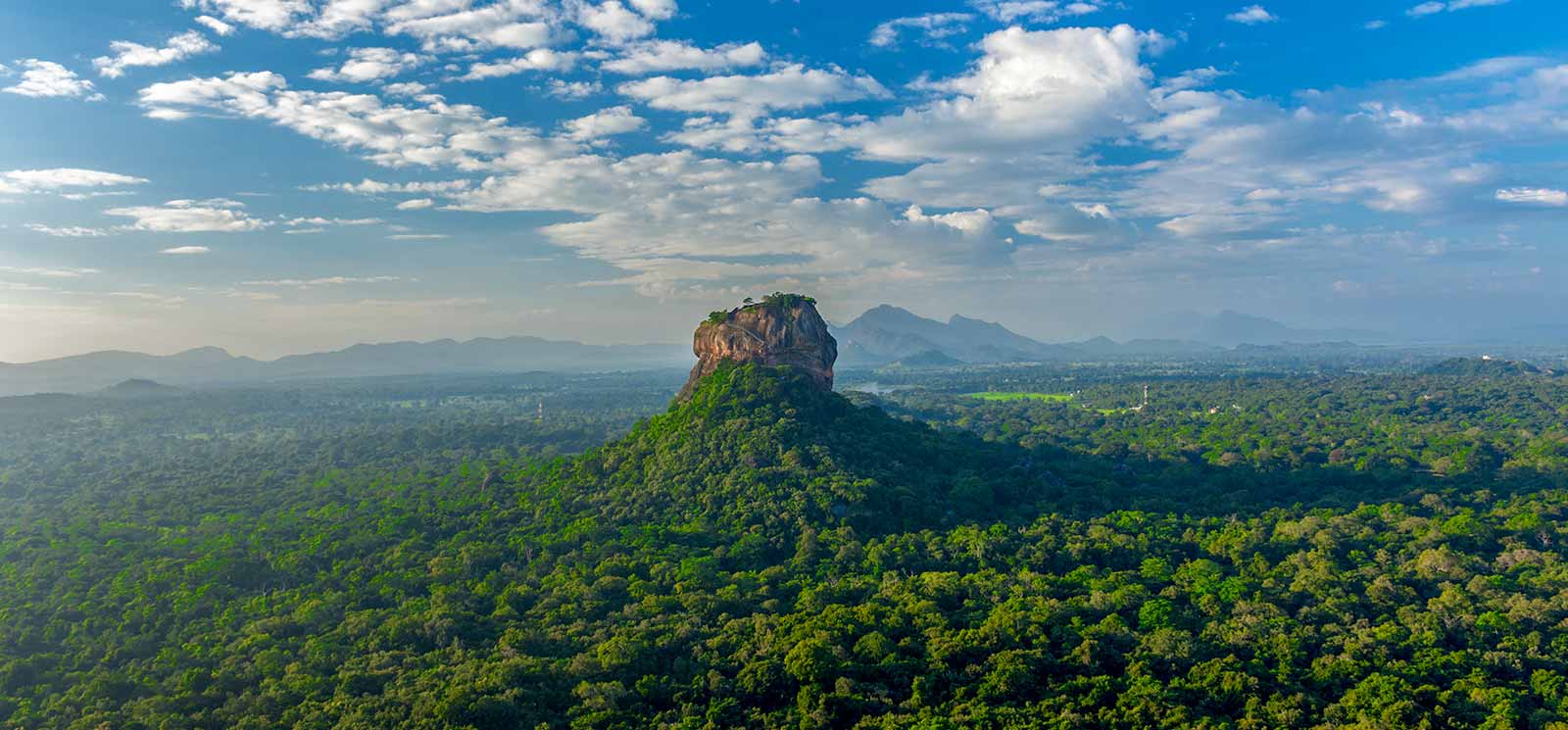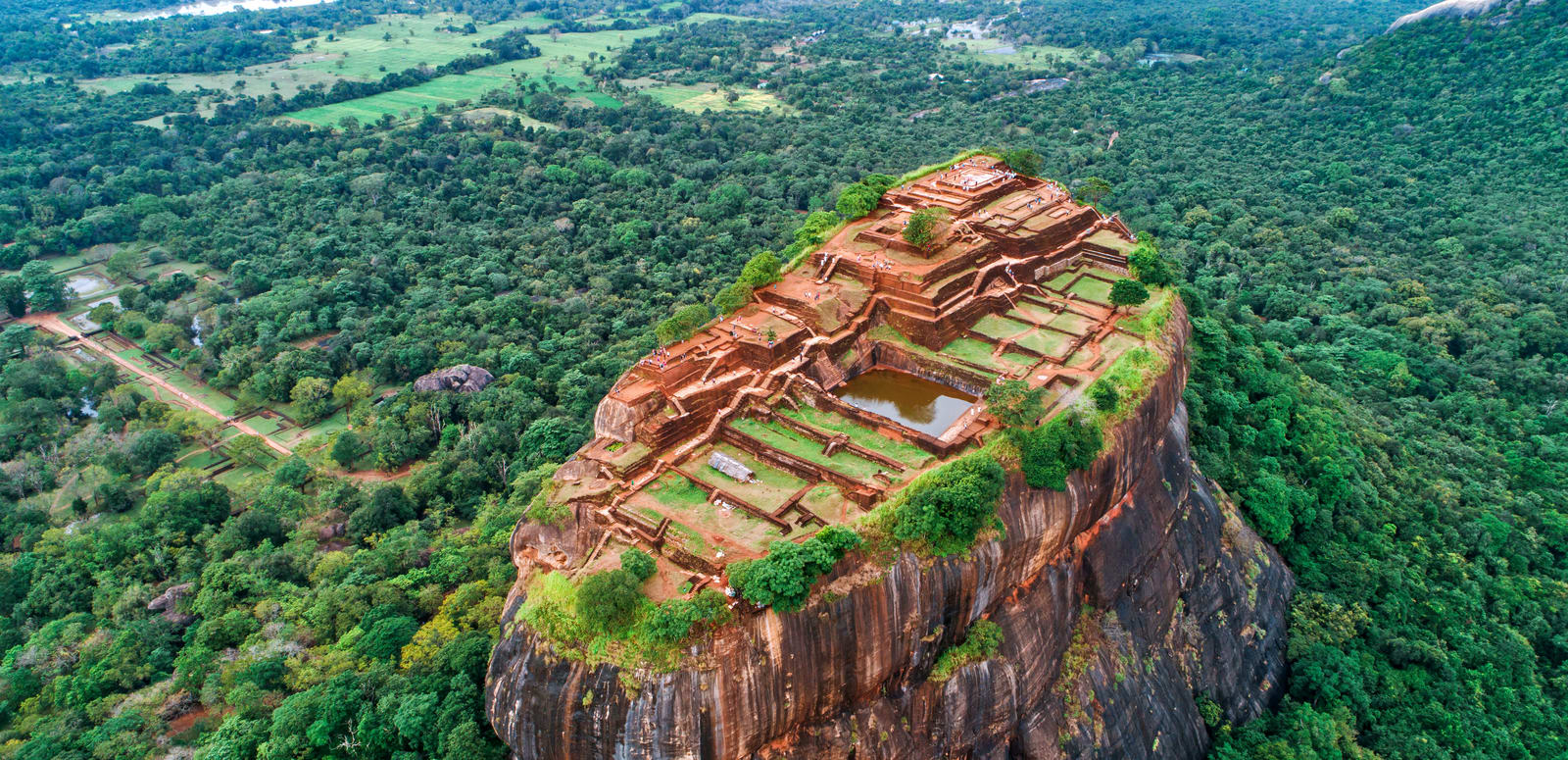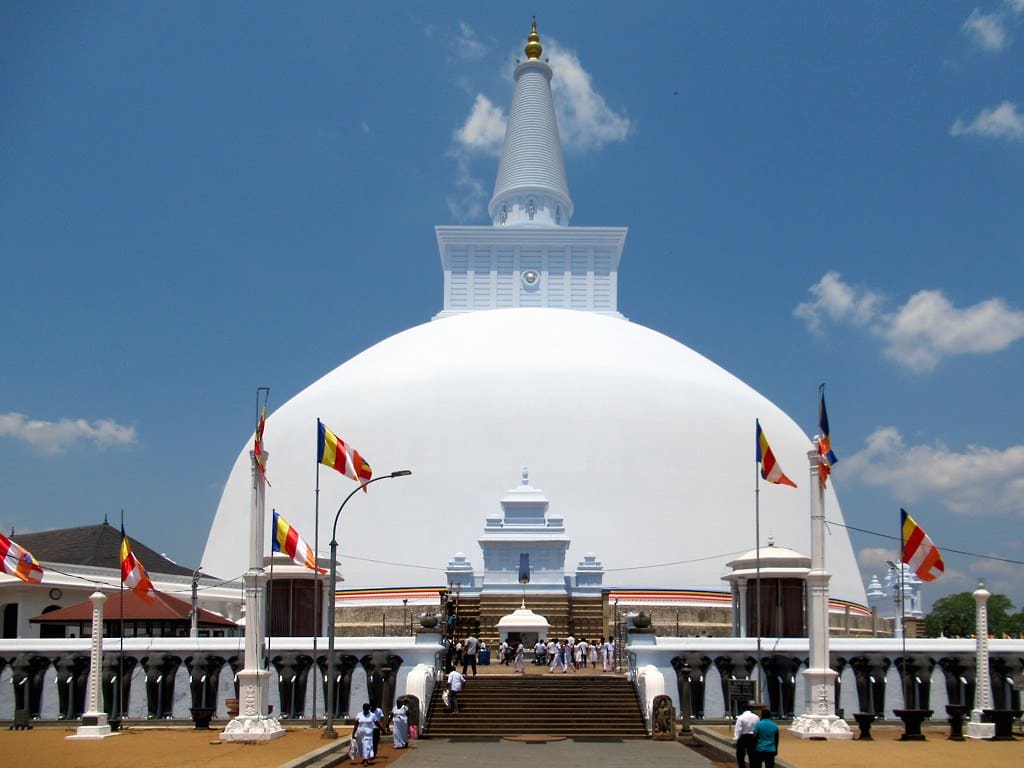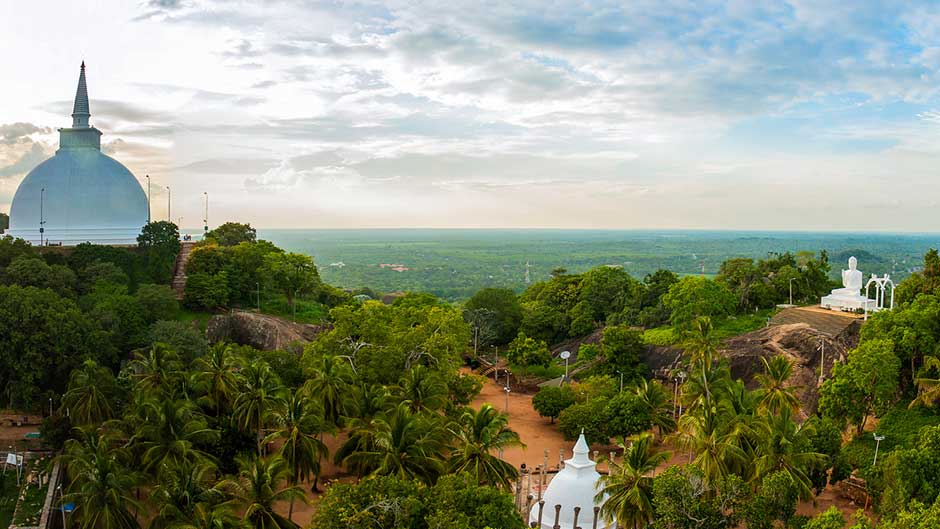Although it is difficult to call a attraction, because the attraction is a kind of stationary object, but the Terracotta Army consists of almost 9000 clay figures of warriors, horses and chariots, which were made around 220 BC for the tomb of the first emperor of united China.
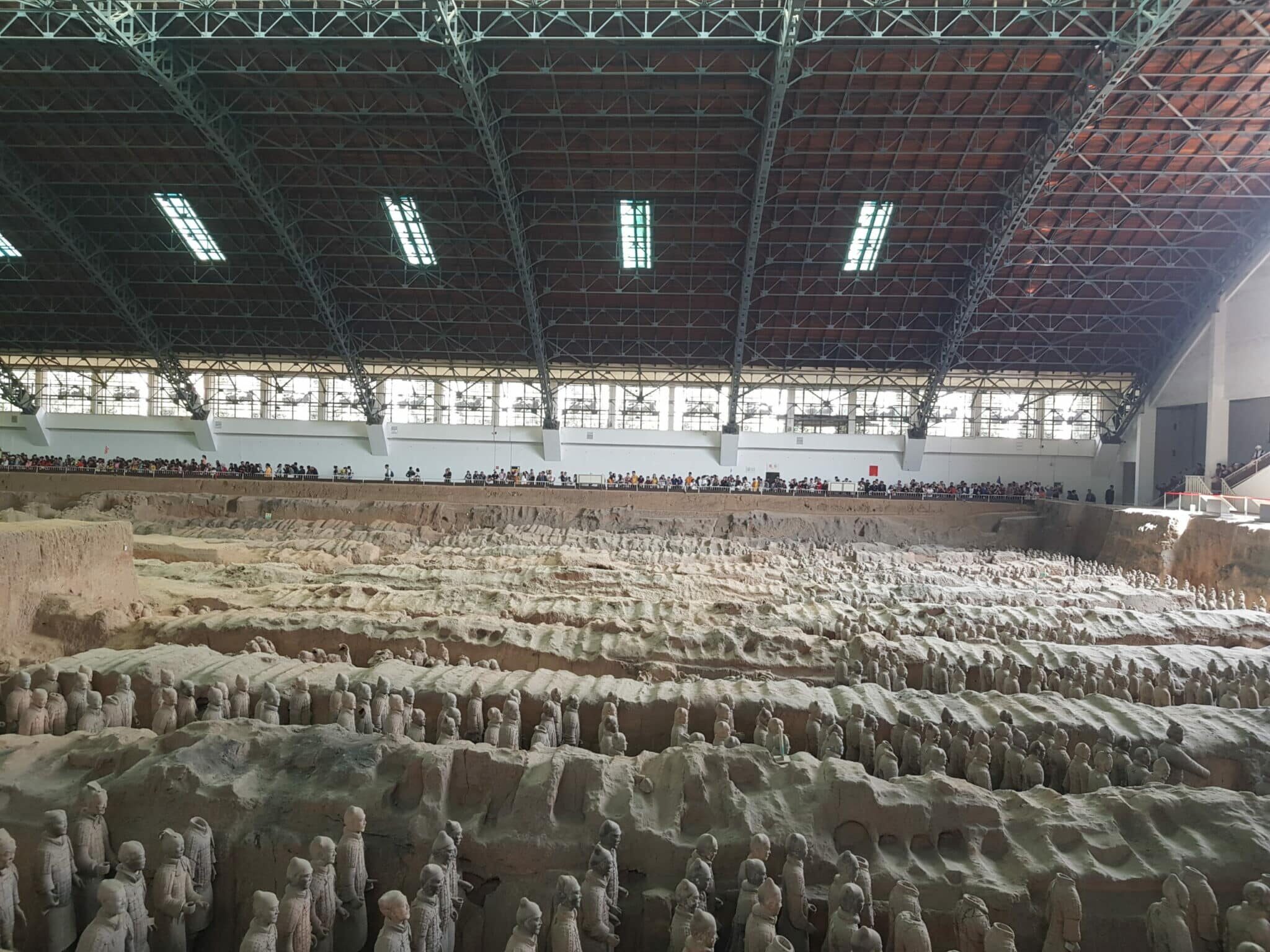
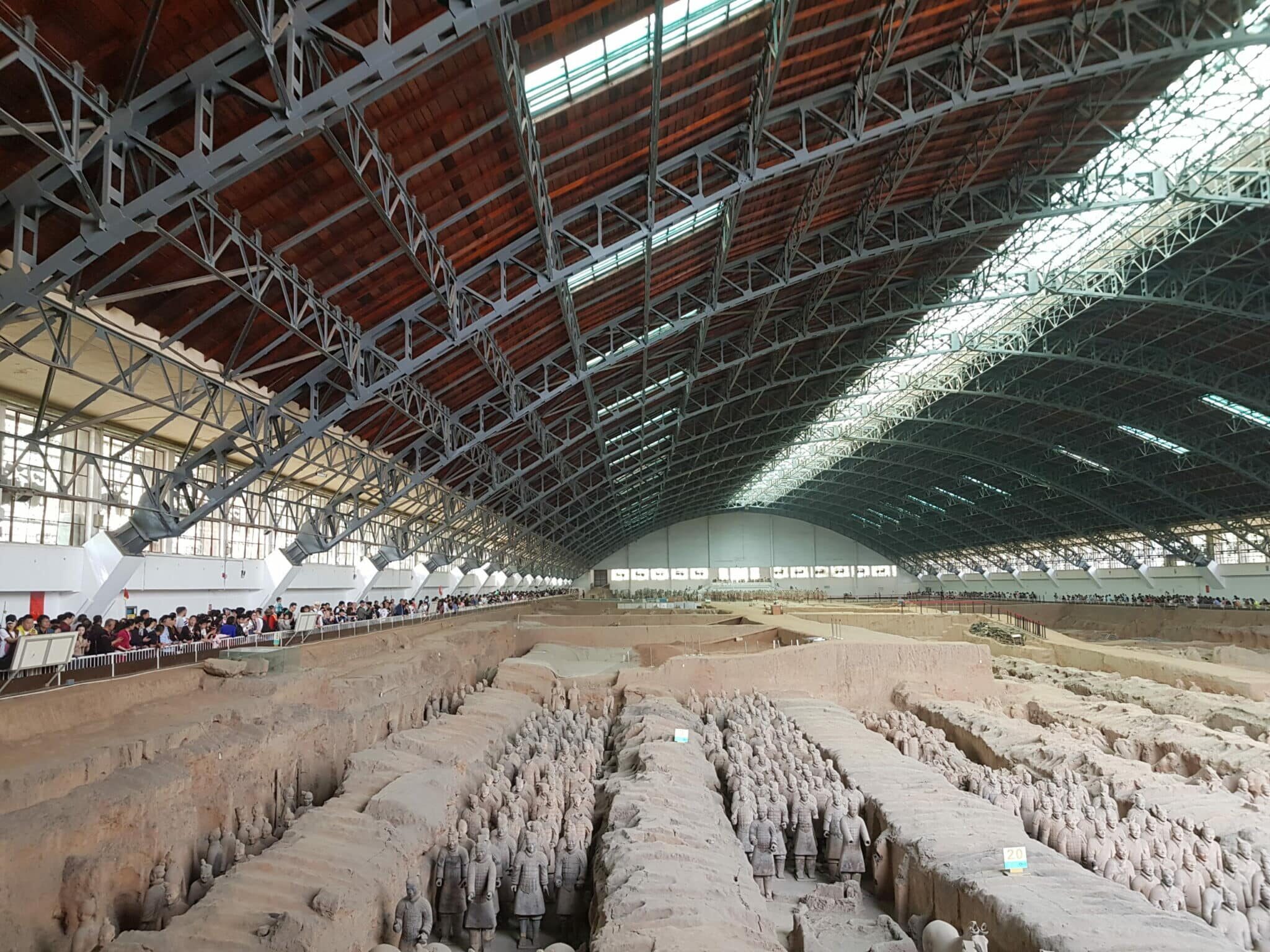
Qin Shihuandi conquered the entire territory of the country and created the Qin Empire. He planned to do something similar after his death. All this clay army was created to serve him in the afterlife. Qin Shihuangdi is the most famous Chinese emperor in the history of the country. It is famous for three outstanding monuments – the Great Canal, the Great Wall of China and the Terracotta Army.
On this page, I will tell you about why it is so remarkable and where to see this man-made miracle. In ancient China until the 5th century BC were beliefs about the afterlife and the belief that objects buried with the deceased could be used by him in the world of the dead. This principle also applied to people.
That is, if the ruler was dying, then a retinue was sent with him to the afterlife. Usually, about 100 people – wives and concubines, a platoon of personal guards, close nobles, artisans and builders.The beliefs of the ancient Chinese were so strong that most took this step without any resistance, most often archaeologists do not find traces of the struggle in the remains. Some were against it, especially artisans and builders. However, who cares….
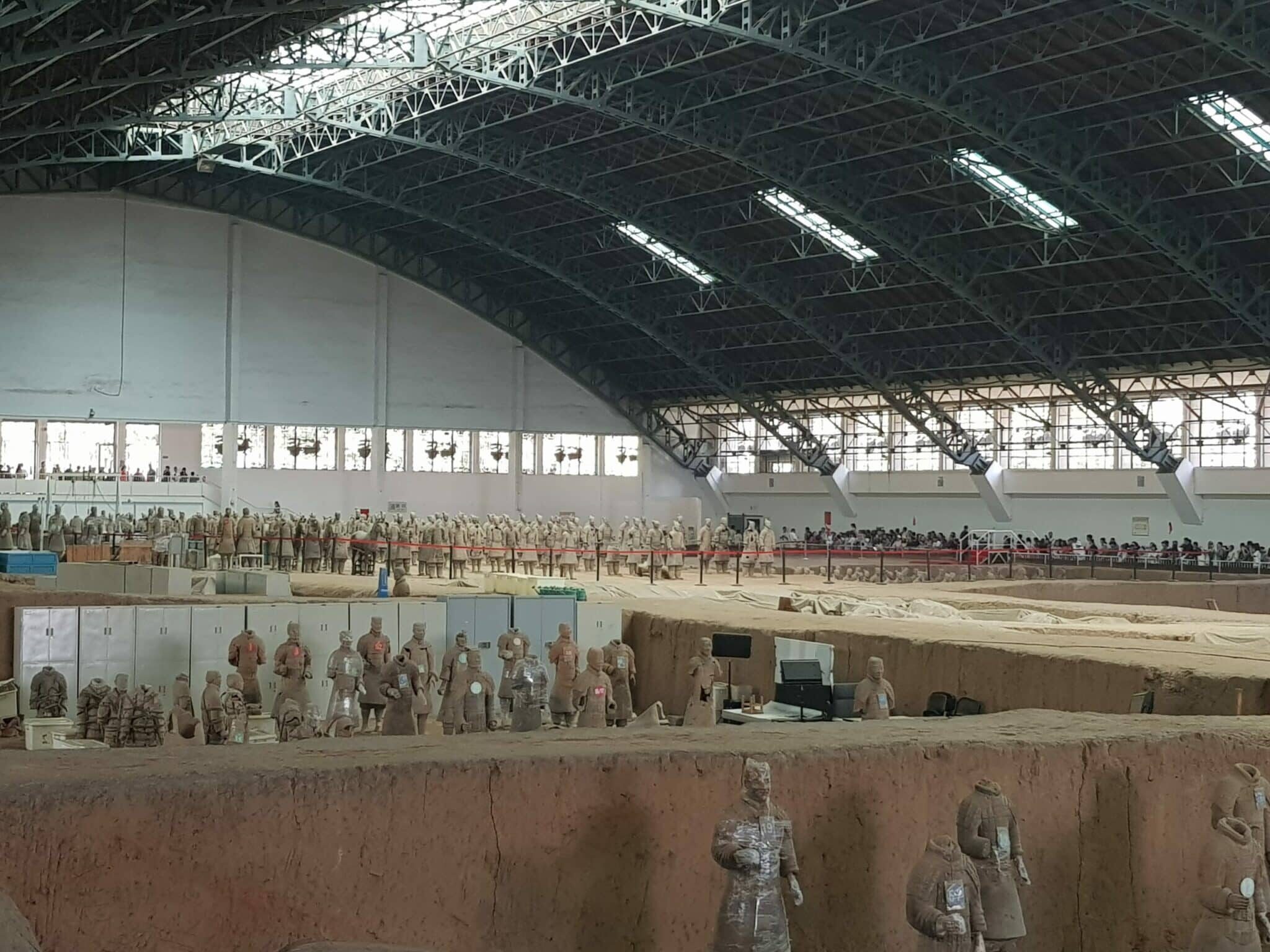
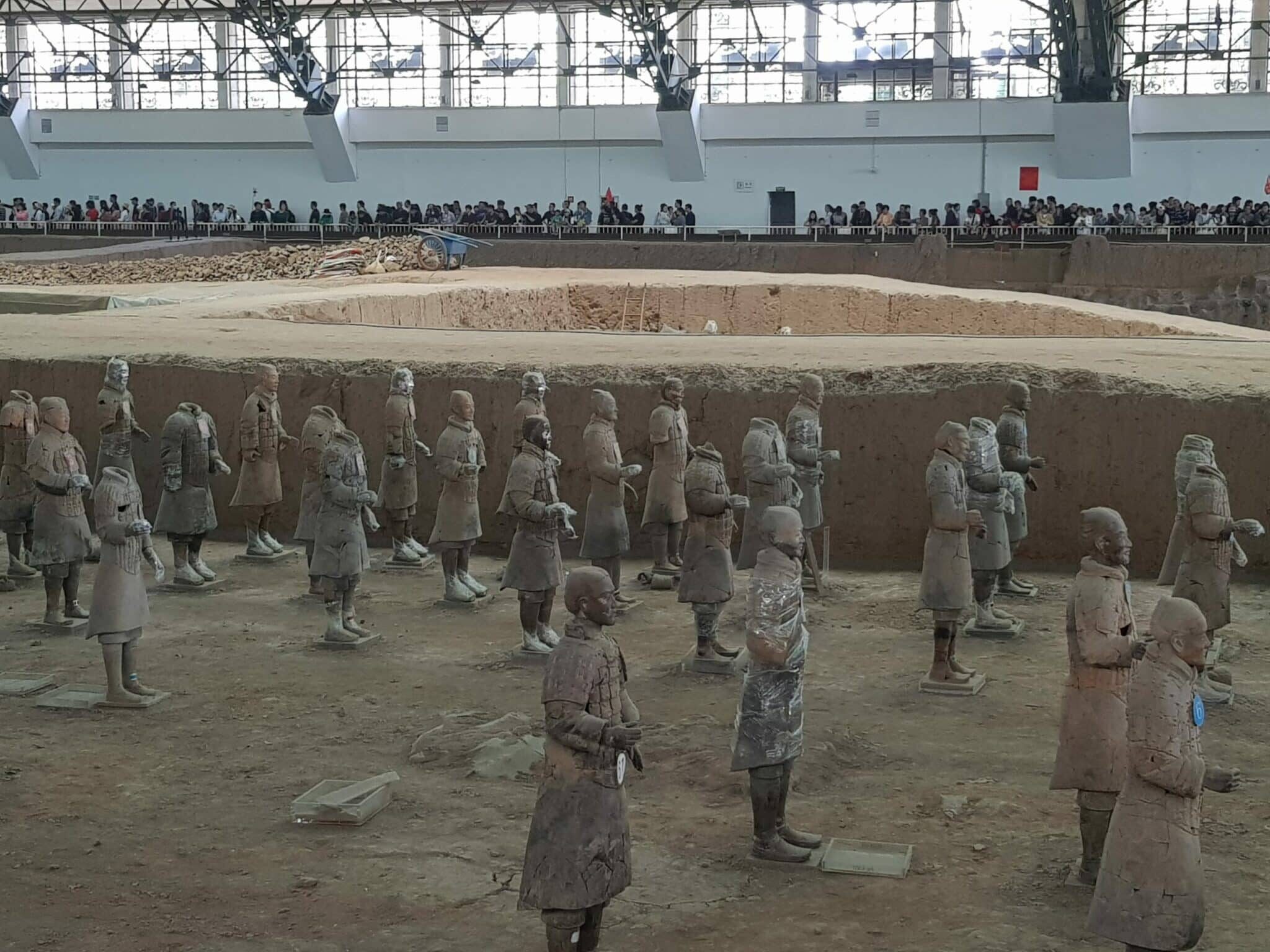
In the 5th century BC, the country has entered a new period in its history. This era of “warring kingdoms” lasted nearly 250 years. All this time, seven states fought with each other without respite. The population of China over the past 250 years has decreased several times.Sending a retinue with the ruler to the world of the dead has become an inadmissible luxury.
Experienced soldiers, skilled craftsmen and talented managers were more needed in this world. Yes, and the rulers were now changing faster, there was simply not enough for all “afterlife escorts”. By the time of the reign of Emperor Qin Shi Huang and the unification of China, this bloody tradition had almost ceased to exist. But. Beliefs in the afterlife have not gone away. Qin Shihuandi wanted to be the supreme ruler in the next world of his tenure. He ordered an army of clay soldiers for himself.
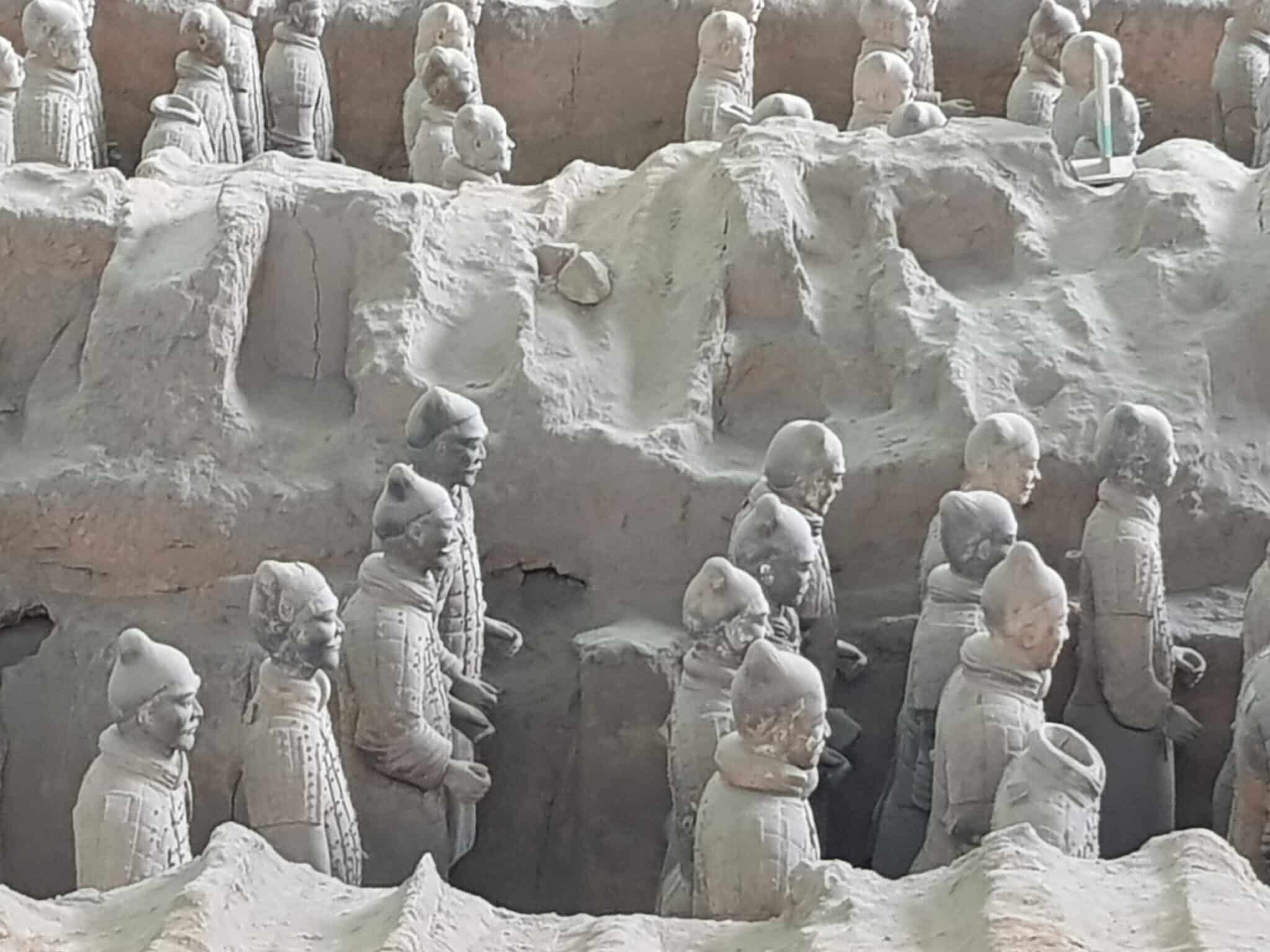
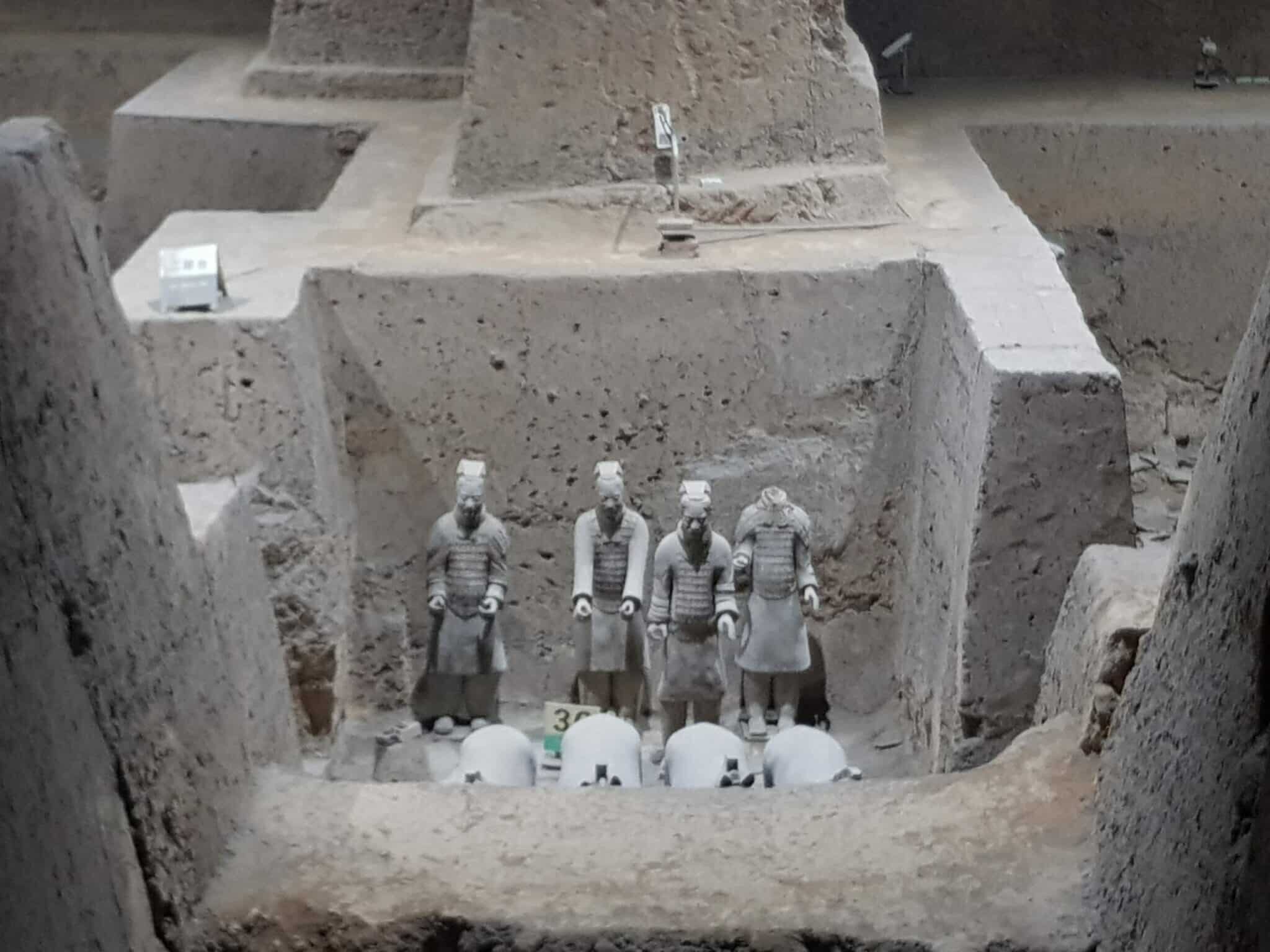
How many terracotta soldiers are there?
A total of 150 horses for cavalry, 130 chariots and 520 horses harnessed by them and from 8,000 to 8,200 foot soldiers were found in the burial complex. Most of the questions are precisely the scatter in the number of foot soldiers. Many people ask: “Can’t they really be counted?” Of course, you can count, and archaeologists have done this a long time ago.
The figure depends on the calculation method. Not all figures have been fully preserved, and it is not clear how to count damaged statues. For example, if a figure does not have a head, should it be considered full or not? If the crippled statues are not taken into account, it turns out a little more than 8000. More soldiers are recognized as “fit for military service”, the larger the figure.
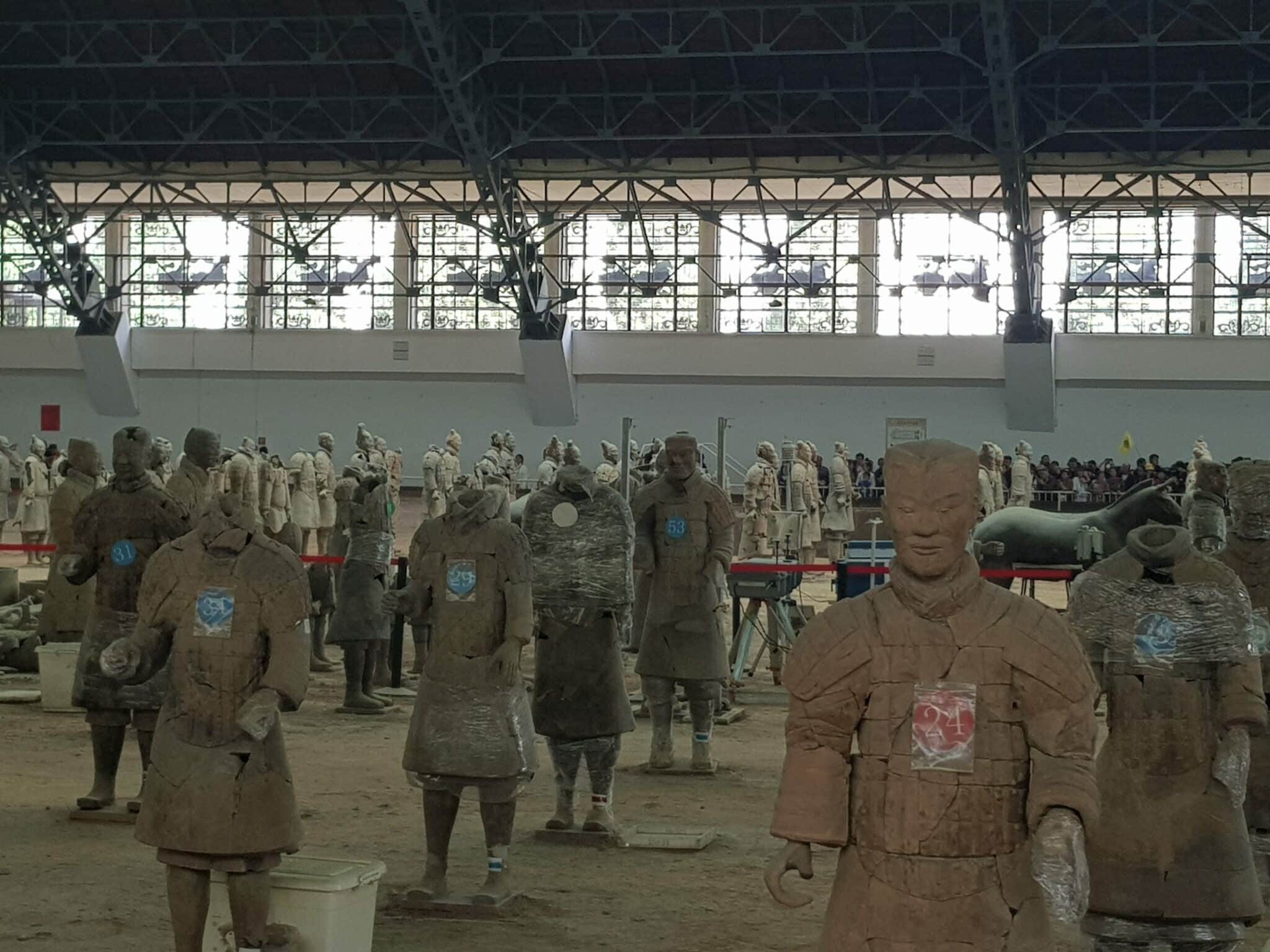
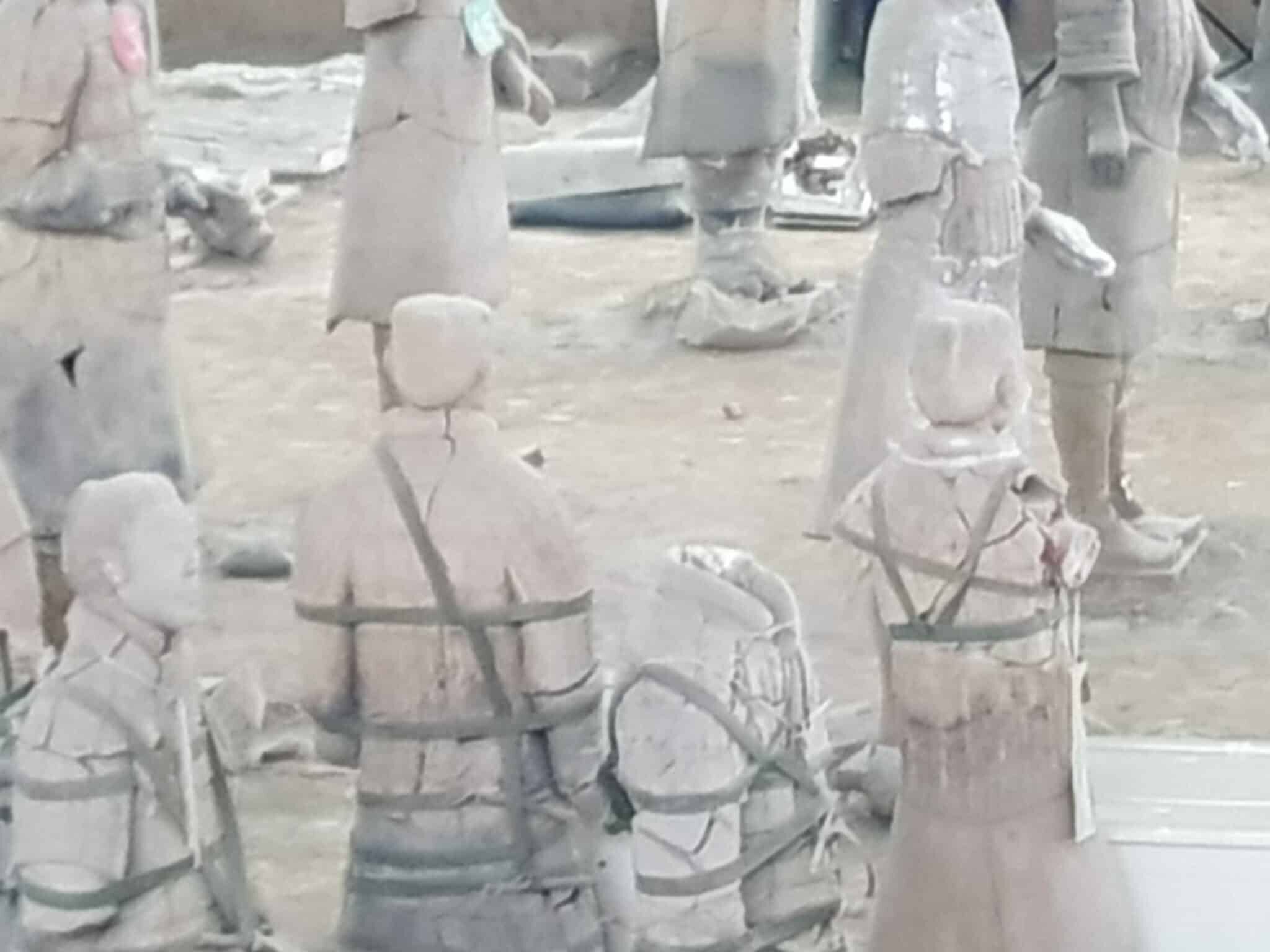
Why are these clay soldiers interesting?
They are all made in full size. Agree, dazzle, burn and collect almost 9,000 of these clay statues – this is a titanic work. Each of them has individual facial features, and among them, there are no two identical. This fact is proved by processing photos using special computer programs.
This is a real army. Among them are ordinary soldiers, officers and generals. The soldiers are divided by military specialties – crossbowmen, spearmen or chariot drivers. In addition to the soldiers, figures of scribes were found, therefore, the emperor wanted to have a bureaucratic apparatus with him in the afterlife.
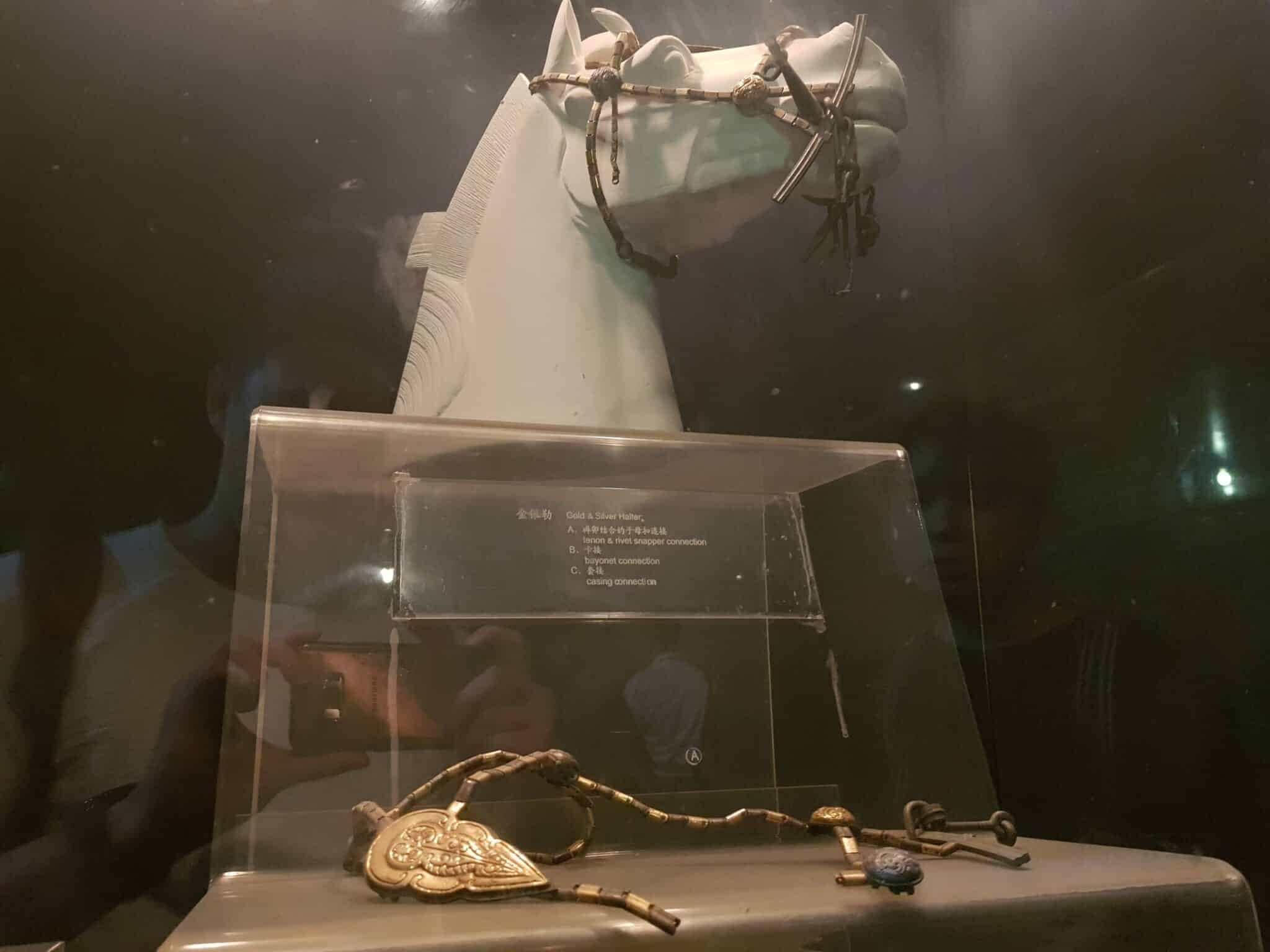
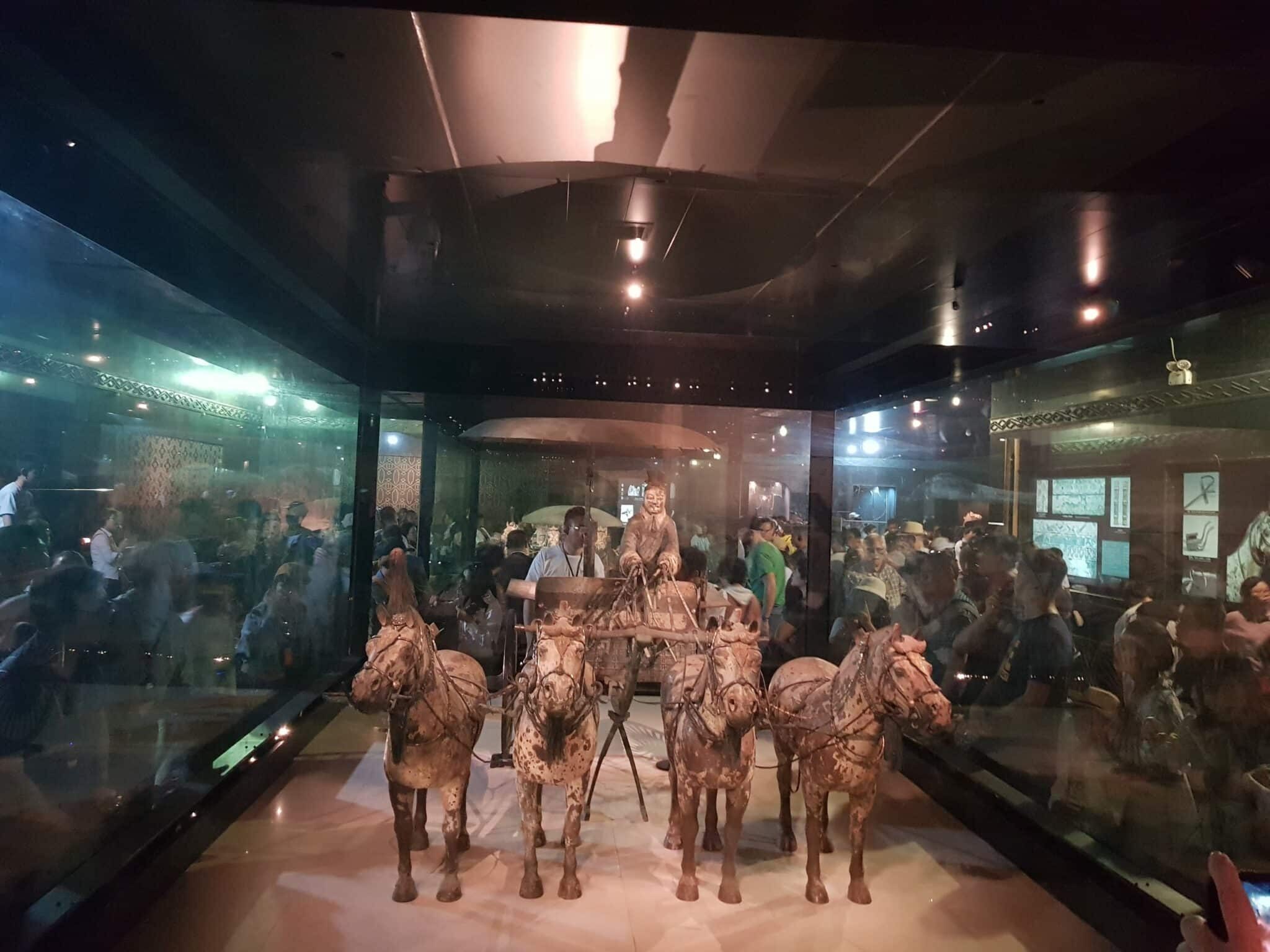
Weapons of terracotta soldiers
Although the soldiers were clay, but the weapons in their hands were given the most real. Unfortunately, quite a few weapons have been preserved. Firstly, the burial complex was robbed several times. Secondly, metal remains much worse than ceramics and many objects are completely rotted.
But, even a small amount of weapons gave scientists many reasons for surprise. For example, arrowheads made in different parts of China were almost the same size. That is, already in the 3rd century BC the Chinese introduced unification in the production of weapons. This is amazing. Thanks to the Terracotta Army, we now have a very good idea of how the soldiers of that time were equipped, what weapons they fought, how they were built on the battlefield and what tactics they adhered to.
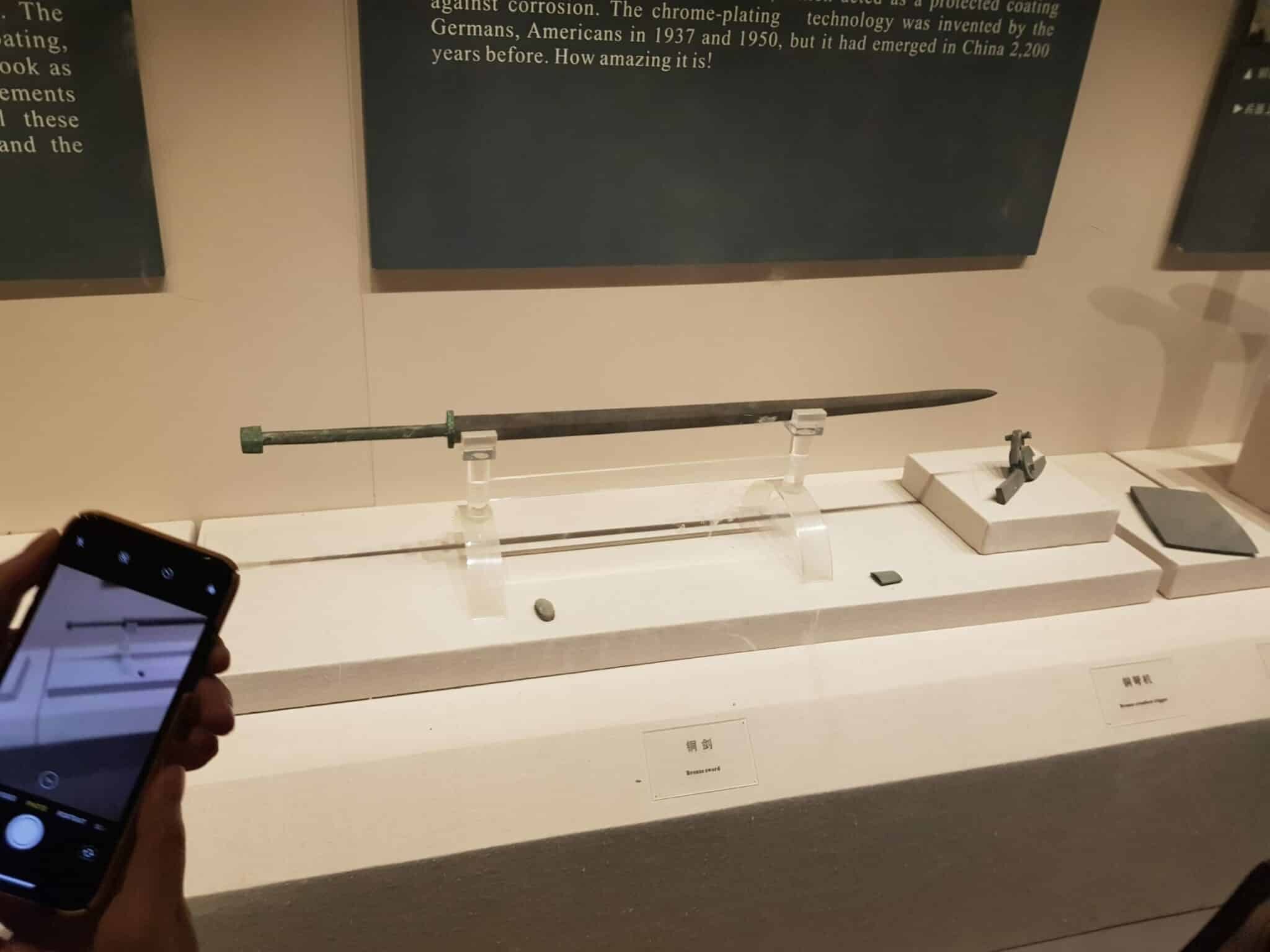
Where to see the Terracotta Army
Almost all the soldiers are where archaeologists excavated them. The archaeological site is located 10 kilometers from the city of Xi’an. This is a large city with a population of 8.5 million people.
To get to the terracotta army you can take a bus that leaves from the bus station (the most profitable option) or taxi.
Back in the same way, if you decide to get off the bus on the road to eat, take a walk or take a picture, that’s okay. Buses run from Xi’an every 10-20 minutes.
The unique museum is open daily from 8:30 a.m. to 5:00 p.m., and the price of the admission ticket is 150 yuan.Also I need to note the whole town, which was built for tourists, there you can also eat, see all sorts of interesting things, take photos…There are few tourists choosing Xi’an as their main travel destination, although the city has many attractions.Xi’an is a beautiful city, you can also look at the Mausoleum of Emperor Qin Shihuandi, the Great Wild Goose Pagoda and a lot of other interesting things…
